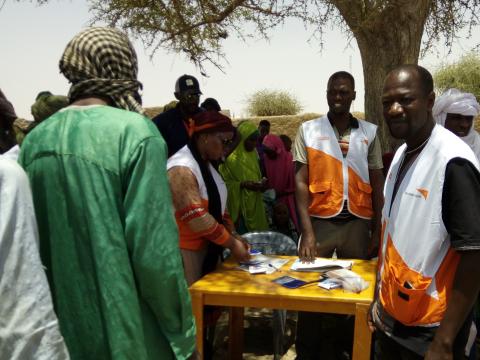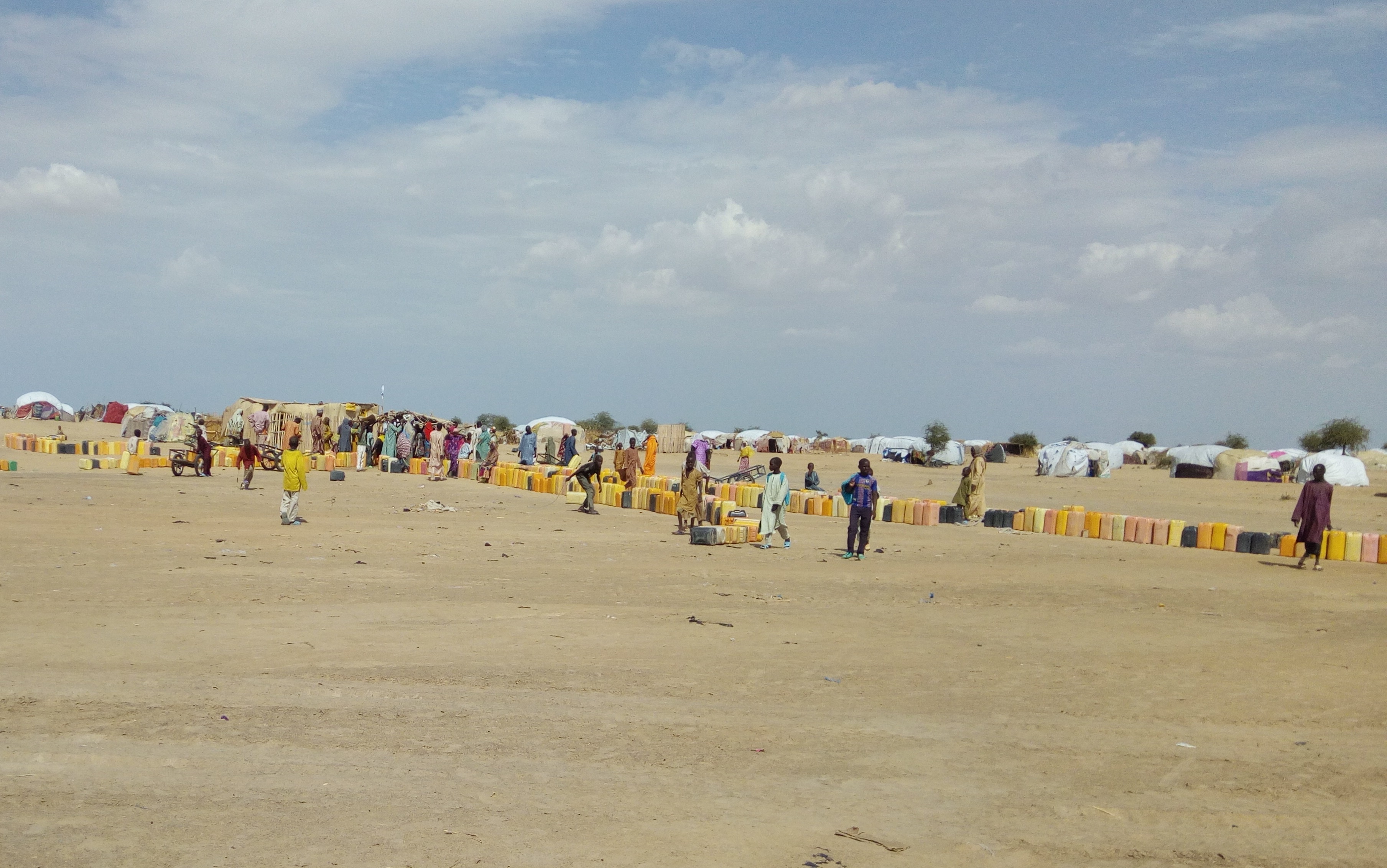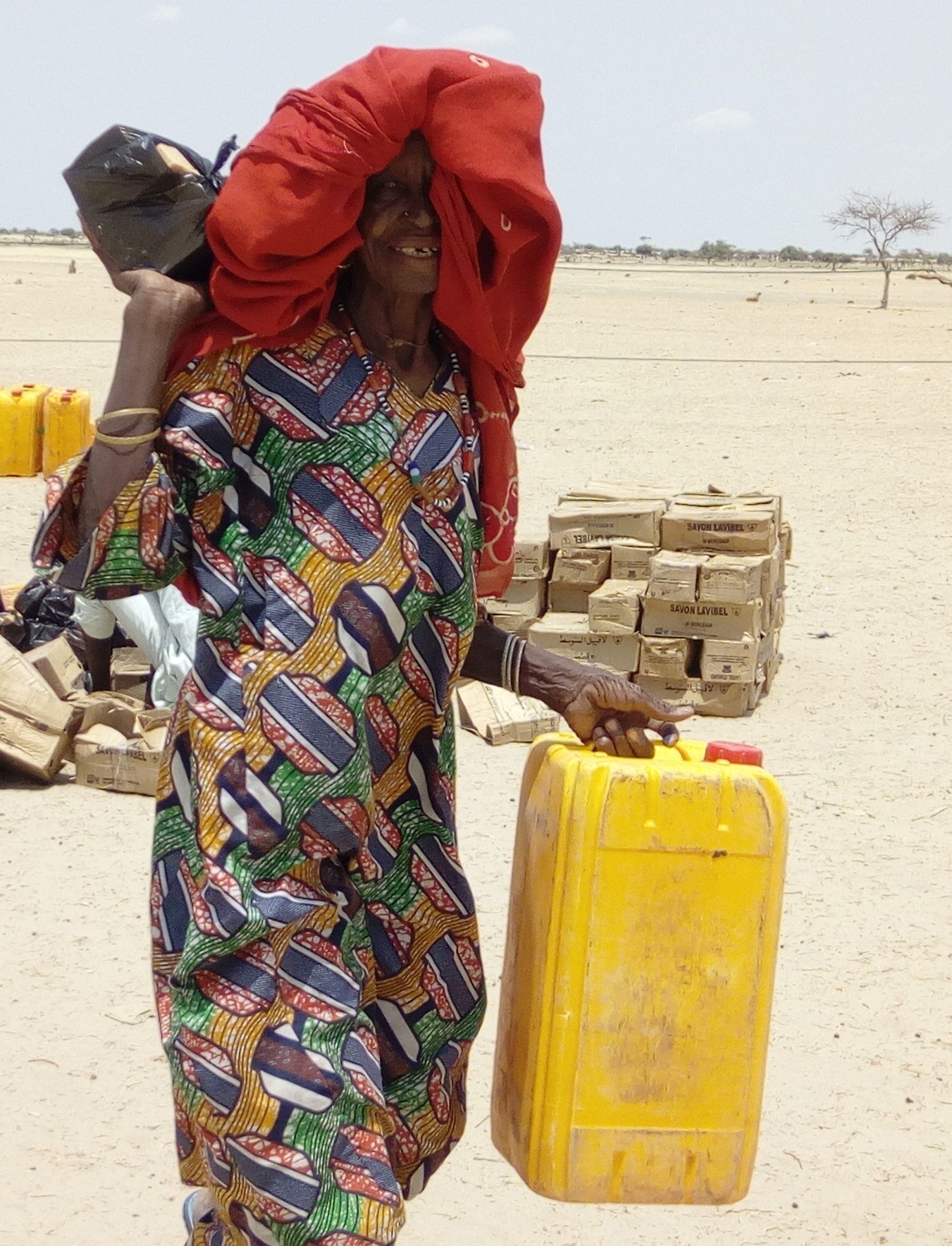Niger Hepatitis E: World Vision responds

A World Vision emergency response team is assisting the Government of Niger in responding to the hepatitis E outbreak that has affected the Diffa region since April 2017.
Already, 800 cases of the disease have been reported to the regional department of public health in the area, resulting in 26 deaths, with the majority of those affected being pregnant women. Hepatitis E is a liver disease caused by a virus that is transmitted mainly through contaminated water, according to the World Health Organization.
Distribution of essential hygiene kits in Kablewa
The Diffa region, which is near the border with Nigeria, has faced an unprecedented security and humanitarian crisis since 2015. The region is hosting more than 300,000 internally displaced people, refugees and returnees who fled Boko Haram’s long-running violence.
World Vision’s Water, Sanitation and Hygiene (WASH) Specialist for the Lake Chad Basin emergency response, Sandy Ngilambi says that lack of access to water, poor hygiene and sanitation practices are being made worse as more and more people arrive in the affected areas, which are also being affected by a lack of rain.
“The outbreak has the potential to spread widely across the region and to neighbouring countries affected by the Lake Chad conflict, putting many more lives at risk,” she said.
World Vision, together with the UK-based consortium START Network, have responded to this health crisis as part of our commitment to keeping children safe. World Vision has been distributing essential hygiene kits consisting of jerry cans, soaps and other non-food items. So far, more than 1700 hygiene kits have been distributed to mostly female-headed households, pregnant and lactating women, as well as children under the age of five.
“One of our main concerns is ensuring that children, as the most vulnerable to harm in times of disasters, and all those who might be affected, will have access to clean water, sanitation, and hygiene kits to help prevent the spread of the disease,” Ngilambi says.
Woman is happy after receiving her 20 litres jerrycan and soaps
Health education on preventive measures has been provided to care givers at health center levels. Antenatal care group and awareness campaigns are also being organized in markets, churches and other public places, accompanied by the disinfection of local households. Our interventions have reached 15 078 people including 114 pregnant women.
World Vision is working in Niger since 1994 and is currently responding to the humanitarian crisis affecting the Lake Chad Basin region, providing emergency relief in the areas of health, education, water and hygiene, food security and the protection of children.

